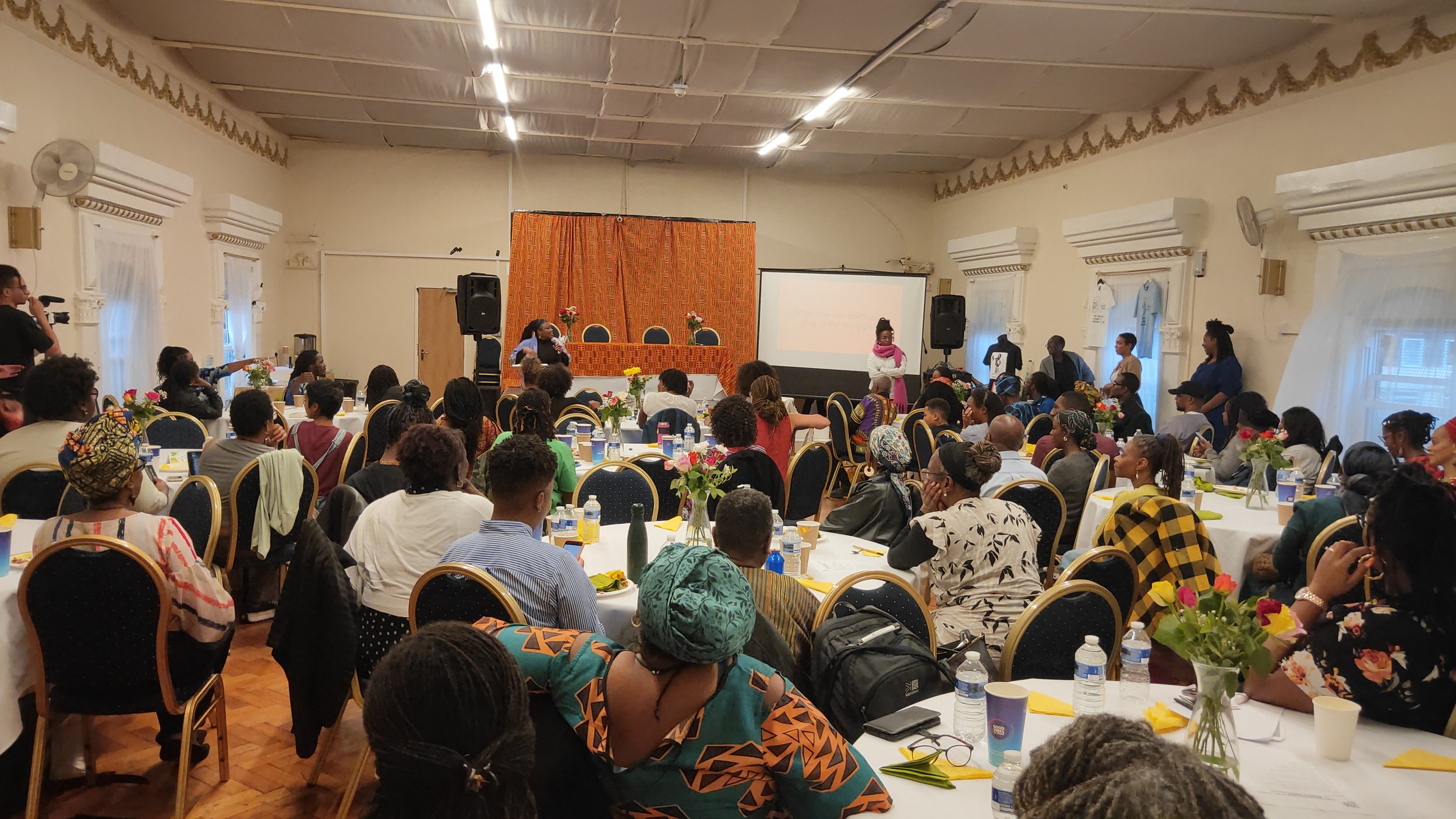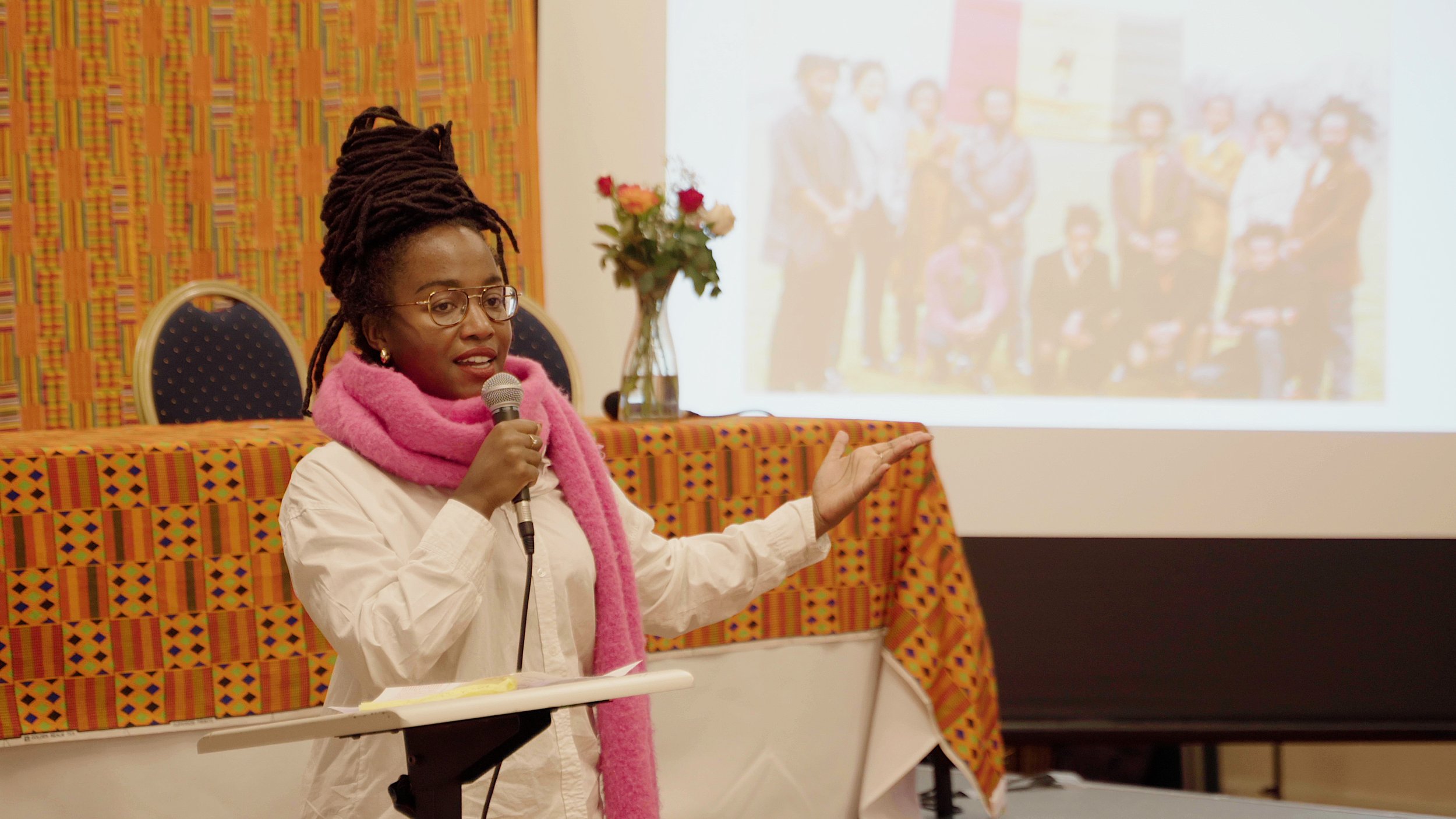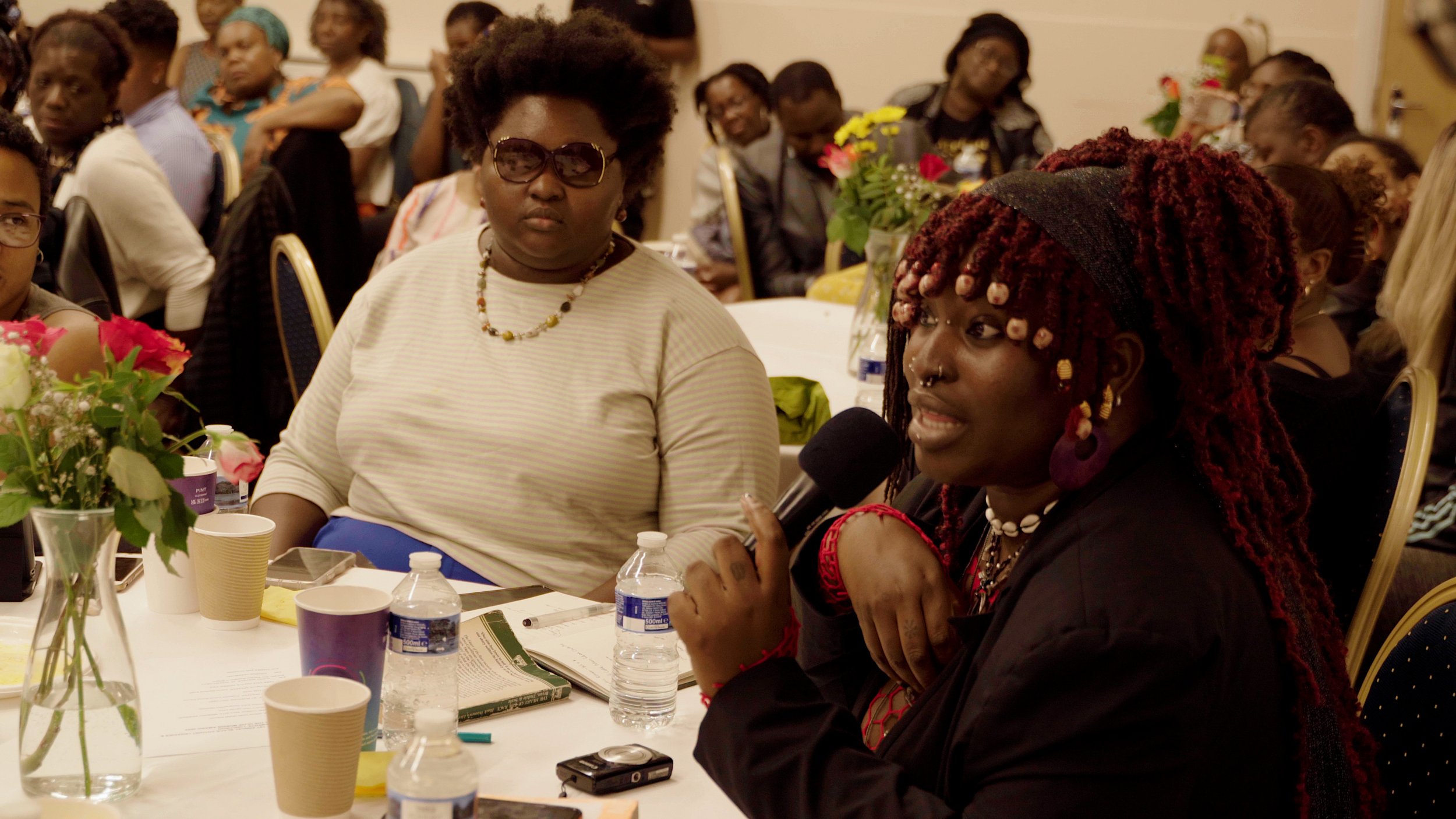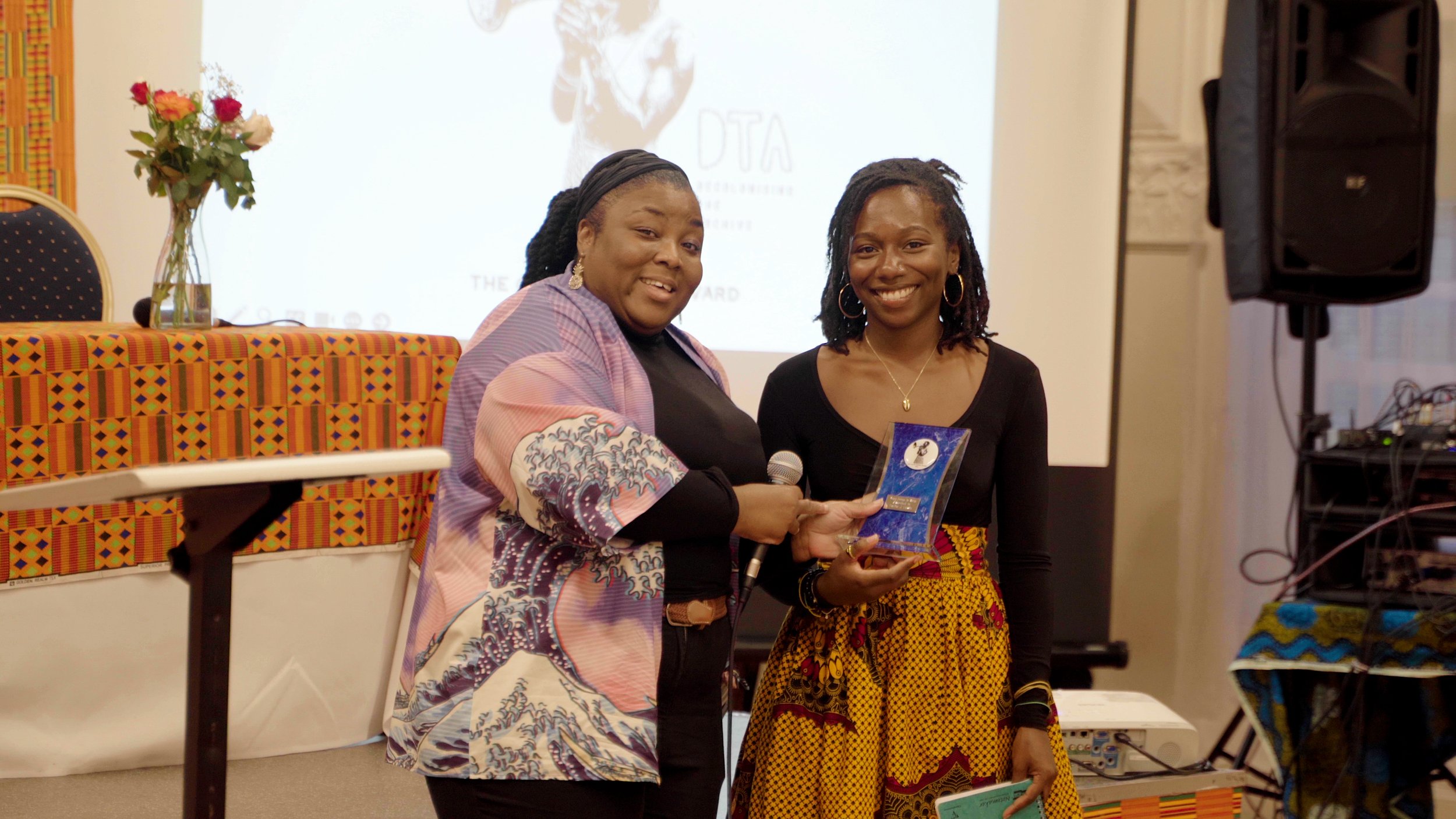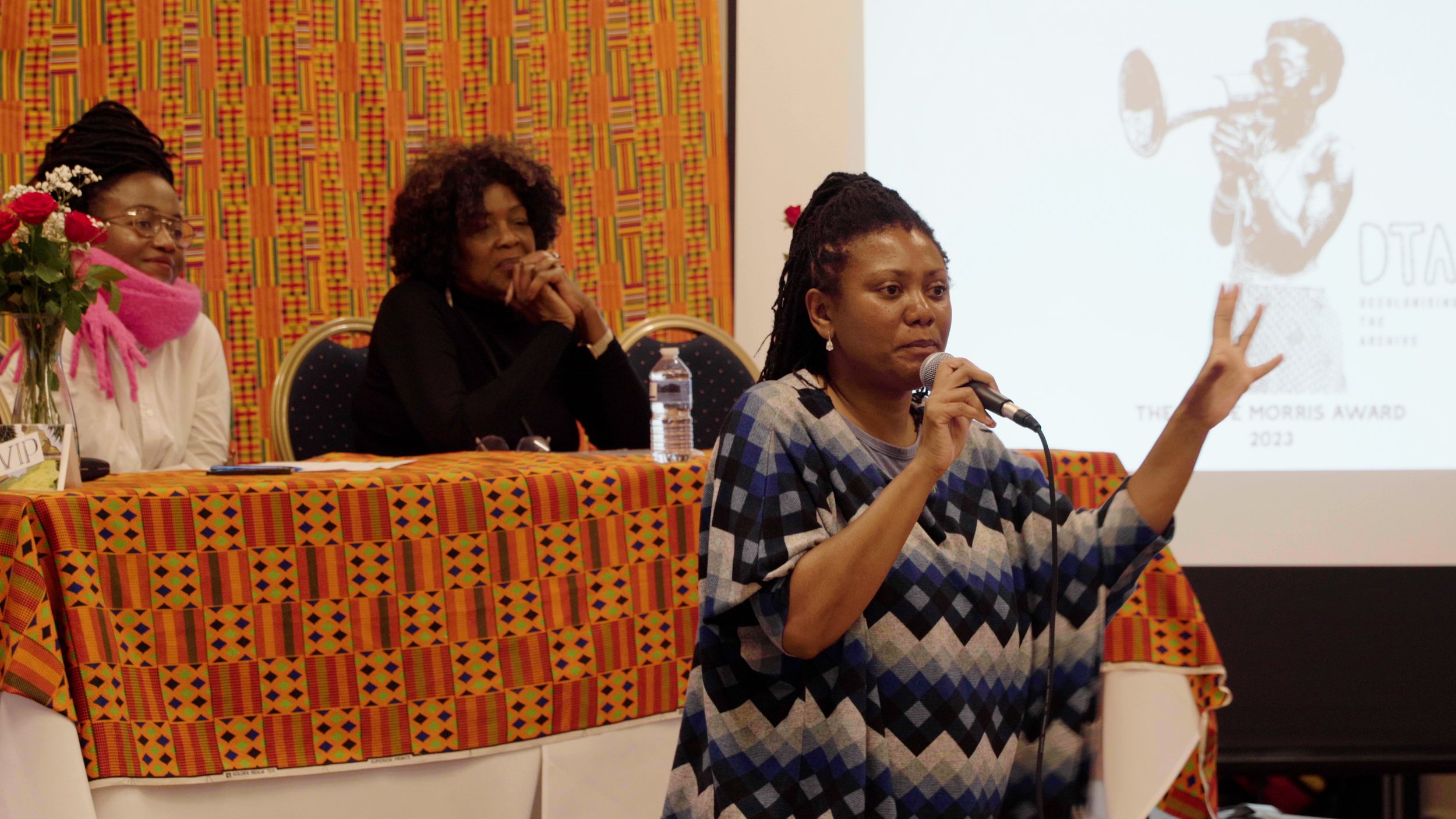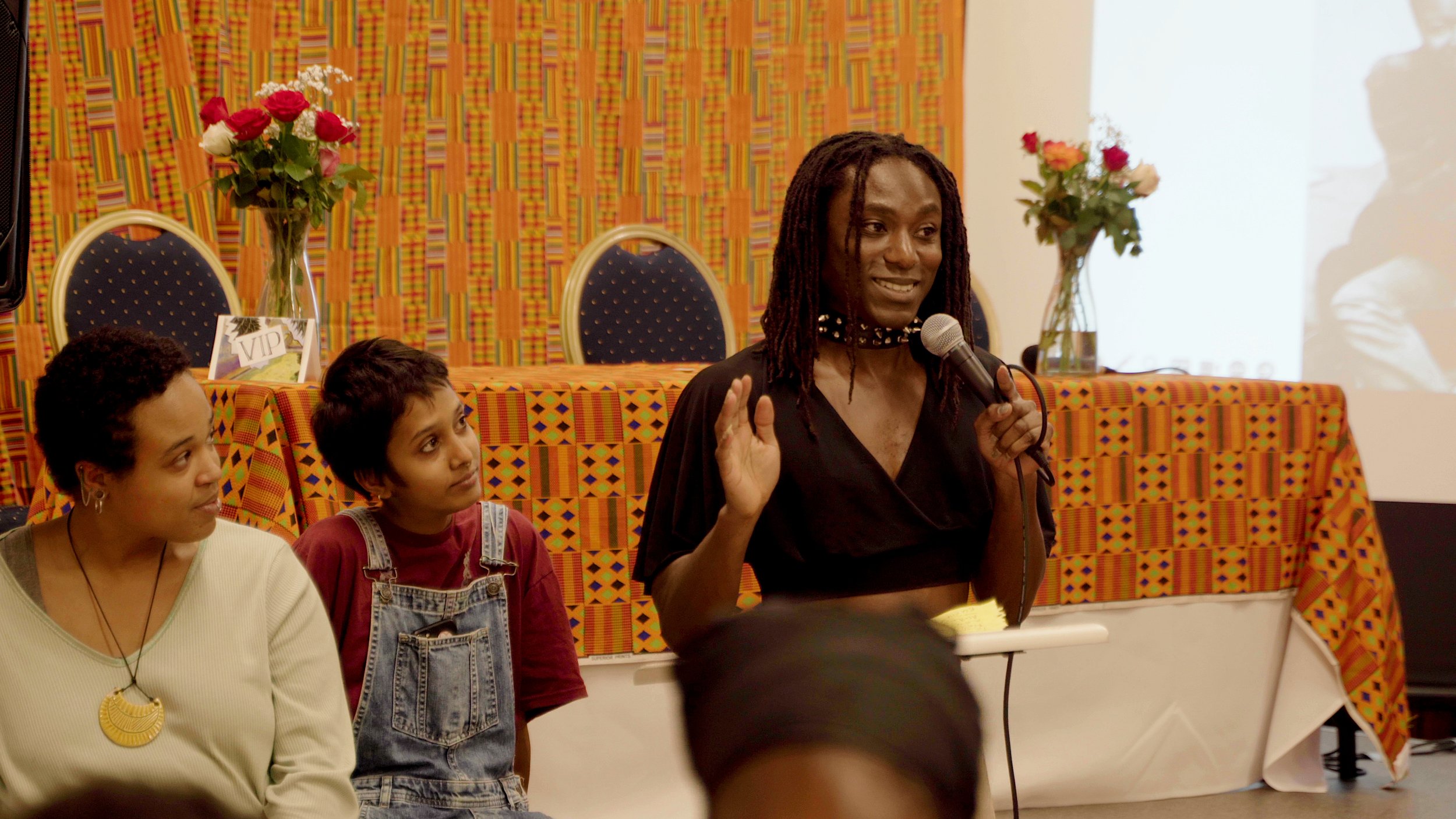ALL OLIVE MORRIS AWARDS RECORDINGS WILL SOON BE AVAILABLE IN OUR NEW RESOURCE CENTRE
~
ALL OLIVE MORRIS AWARDS RECORDINGS WILL SOON BE AVAILABLE IN OUR NEW RESOURCE CENTRE ~
REMEMBERING OLIVE MORRIS
British Jamaican Black Panther Activist who fought oppression and campaigned heavily for equality.
26 June 1952 - 12 July 1979
Thanks to all who Attended the Olive Morris Awards Luncheon 2025!
The Full Recording will be Available to Watch Soon in our Resources Hub!
This year’s event was a powerful, vibrant, and deeply inspiring day as we celebrate five years of honouring the bold, visionary Black women building stronger communities across the UK.
This year’s theme, Women in the Business of Liberation highlighted the fierce and transformative work of Black women in community development driving positive change, grassroots progress, and collective care.
At the heart of the Olive Morris Awards is a commitment to uplift and spotlight Black women leaders who are not just doing the work, but doing it for the people. Inspired by the revolutionary legacy of Olive Morris and the freedom-fighting women who continue in her footsteps, we honour those who challenge systems, build networks of support, and hold space for joy, justice, and liberation.
Award Ceremony
Celebrating phenomenal women chosen by communities across the UK, whose work embodies radical love, resilience, and community power.
Winners:
Jemmar Samuels - A campaigner, speaker & writer. Jemmar is the Founder of Collective Punishment highlighting and tackling the impact of parental imprisonment on families, and in particular children, in the UK. She is also co-founder and co-organiser of award-winning Halo Collective.
Temi Mwale - Temi is an Executive Director of The 4Front Project which is a member-led youth organisation, challenging injustice, building peace, and holding space for radical healing.
Tianna Johnson - Tianna is the founder of Black Girls Camping Trip CIC, a social enterprise dedicated to creating safe, joyful, and liberatory spaces for Black women and non-binary people in the outdoors.
Claudine Ecclestone - Claudine is a social justice community activist from Hastings. Her community project, Playing the Race Card" sparked a locally impactful conversation on race, identity and social justice.
Power Panel: Roundtable on Global Liberation
This year’s focus expands Olive’s framework to the global stage, examining how struggles abroad are linked to our own, and how solidarity can be a tool for survival and transformation.
Featuring:
Marian Faye (The Gambia)
Marian Faye is a Gambian social worker fighting against child sexual abuse & human trafficking.
Jumana Eltgani (Sudan)
Jumana Eltgani is a gender justice advocate dedicated to advancing equity working closely with Sudanese women. Since moving to the UK, she has remained engaged with Sudanese women and the diaspora, collaboratively envisioning a peaceful future for Sudan rooted in civilian-led efforts to end the war.
Hania Tayara (U.K/Syria)
Hania is a Syrian-Palestinian co-production specialist and activist working at the intersection of health and social justice. Her prize-winning research explores the boundaries between Israeli settler colonialism and Palestinian health, arguing that there can be no meaningful healthcare solutions without Palestinian liberation.
Moderator: Dr. Rita Gayle
Dr Rita Gayle is the Postdoctoral Research Fellow for the Conjunctures Strand of the Stuart Hall Archive Project. Rita is a historical-cultural-geographer working at the intersection of race, gender and the city.
🍽️ Luncheon + Joyful Gathering
We enjoyed delicious food, a mini short film fest, games, prizes, and surprises that will nourish your spirit and spark new connections.
THE OLIVE MORRIS MEMORIAL AWARD PROGRAMME
DTA is happy to announce that since 2023 we have been managing the Olive Morris Memorial Award programme that was initially founded and managed by the Remembering Olive Collective. We acknowledge the great work previously done by the collective in keeping the legacy of her work alive and are honoured that we are able to support the continued vision and mission to share Olive Morris's legacy and work with the community in a way that they may engage and incorporate vital lessons in their current life should they require to.
THE AIM OF THE OLIVE MORRIS AWARD PROGRAMME
The Olive Morris Memorial Awards Programme was originally organised by the Remembering Olive Collective (ROC) to celebrate the legacy and principles of Olive Morris. The Awards were created as an opportunity to celebrate her spirit as it lives on in the work of a new generation of young women activists. Women aged between 16 and 27 years of age, of African or Asian descent and involved in grassroots political work of any nature were nominated for the awards by their friends, colleagues or mentors. Of the nominees chosen to receive an award.
THE OLIVE MORRIS MEMORIAL AWARDS 2024
The 3rd Annual Olive Morris Memorial Awards on 12th October 2024 was a great success. Congratulations to all the winners & thank you to all who voted. It was a joyous occasion of celebration of women activists of African heritage making an impact here in Britain, full of Intergenerational reasonings, food, games and upliftment.
2024 WINNERS
1) Rebecca Ihiekwe
Lawyer and diversity advocate in the legal and heritage sectors.
2) Zita Holbourne
Leading trade unionist and human rights campaigner.
3) Kelechi Okafor
Storyteller, Poet, podcaster, liberative dance teacher and diviner.
4) Binta Yade
Community organiser, poet and lawyer. She is a co-founder of the Aada Collective, a Pan-African educational collective.
KEYNOTE SPEAKER
Our 2024 keynote speaker was Stella Dadzie, a feminist educator, speaker and historian. Dadzie co-authored the book Heart Of The Race: Black Women's Lives in Britain (1985), the seminal contribution to Black British history. As a historian and activist, who was a notable participant in some of the campaigns founded by British women since the 1970s that she writes about, she has an expert insight into Black feminist legacies and movements.
COMMUNITY ARCHIVISTS: COMMUNITY CONSULTATION
Our Community Archivists in training held a Community Consultation offering new insight into Olive Morris’ legacy and women’s liberation in Britain. You can watch this below.
FRAMEWORKS: THE FIRST ANNUAL BLACK ACTIVISTS LUNCHEON + OLIVE MORRIS AWARDS - 7TH OCTOBER 2023
FRAMEWORKS is a conference and award ceremony exploring and inspired by the legacy of activist and organiser Olive Morris. DTA is proud to have had Professor Carole Boyce Davies as the Keynote speaker at the 1st Annual Black Activists Luncheon and Olive Morris Awards Ceremony. The speakers and attendees helped create a space that explored and celebrated African heritage women’s organising (and nyam some good food!)
Our Speakers on the Day:
Specialising in the field of Black British Women’s Movements, Black feminist thought, liberative actions and reparations, these women have years of experience in academia, organising and activism.
Keynote Speaker:
Dr. Carole Boyce Davies - Professor of Africana Studies and English & author of the prize-winning Left of Karl Marx: The Political Life of Claudia Jones (2008).
Guest Speakers:
Dr. Rita Gayle - From the Global Black Geographies Network, Dr Gayle has charted the emergence of the millennial generation of Black feminist-led creative collectives.
Dr. Aleema Gray - Based in London, this Jamaican-born curator, researcher and public historian was awarded the Yesu Persaud Scholarship for her PhD entitled Bun Babylon: Rastafari Movement in Britain.
Our 2023 Award Winners
• Joyclen Buffong – Founder of Rise 365
• Althea-Maria Rivas – Founder of the Ebony Initiative
• Tanita J. Lewis – Coordinator-general of Aya Afrikan Learning
• Elaine Holness (MBE) – Winner of the special Long Standing Community Award
REGISTER FOR THE 2024 AWARDS HERE
Our 2022 Award Winners
Lola Olufemi
Barbara Edem Ntumy
Yasmin Begum
Shanelle Webb
Scarlett Westbrook
Afruika Bantu Saturday School (Special Award)
thanks to all who attended our 2022 event at the Karibu Centre, brixton.
OLIVE MORRIS RESOURCE GUIDE
This page shares contemporary reflections on Olive Morris’ life and legacy as well as a collection of archives gathered together from the Remembering Olive Collective , Lambeth Archives, Freedom Bookshop, artists and community members. In doing this, we want to show how robust Olive’s activist legacy is while also and also presenting a more personal human side to Olive so that those who engage with her work may feel more connected.
VOICING OLIVE’S LEGACY: PODCAST
Voicing the Legacy of Olive Morris is a new DTA Radio Podcast series with host Chloe Tayali which communicates Olive Morris's legacy through the lens of contemporary activists who are working tirelessly to empower Black communities in Britain and taking matters into their own hands when failed by the governing system. Episode 1 looks at Yasmin Begum's trailblazing work.
REMEMBERING OLIVE: TIME TO PASS THE MEMORIES ON
LIZ OBI
VOICEOVER: CONNIE BELL
BLACK HISTORY MONTH: THE POWER OF OLIVE MORRIS
By DR ANGELINA OSBORNE, HISTORICAL RESEARCHER AND HERITAGE CONSULTANT
Olive Morris was a community activist in South London in the 1970s, who died of cancer aged 27 in 1979. Through her activities organising the black community and feminist activism, she left behind an extraordinary legacy of local activism.
In 1986 the Brixton Black Women’s group, of which she was a co-founder, campaigned to have 18 Brixton Hill renamed Olive Morris House in her memory. In 2006 the Remembering Olive Collective set up an online resource to collect information and material relating to her life and the organisations she worked with, and conduct interviews with people who knew her, to keep her memory and legacy alive.
For many years I was unaware of her existence, or the contributions she had made to the communities in London and Manchester. I was curious why this black woman had not been recognised for her accomplishments beyond South London and was absent in the discourse on black radical feminist and community activism. I wanted to learn more about her, to get a sense of her personality and politics, and why she had committed herself to radical activism. There was nothing I could find that explained Olive’s choice to immerse herself in Marxist Leninist thought, or what single event politicised her. These things, I suppose, are gradual; not one event but a series of events that makes one choose their life’s calling. Looking through her papers held at Lambeth Archives, I came across a photograph taken of her in 1969, when she would have been around 17 or 18. Her face was swollen, her clothes torn and dirty. On the back of the photograph was written, ‘Leaving Kings College Hospital after police assault. 15th November 1969’.
Earlier that day a Nigerian diplomat had parked his Mercedes on Atlantic Road in Brixton, leaving his wife and children in the car while he bought some records. Police officers, thinking the diplomat had stolen the car began to, according to witnesses, arrest him and beat him. Olive came forward and physically tried to stop the police from attacking the diplomat, causing the police to turn on her, arrest her and assault her, kicking her in the chest. This young girl, barely five feet two inches, took on racist police officers, without thinking about her own safety, because she couldn’t stand by and allow the injustice of an African man being arrested for driving a nice car. This was one early incident of Olive’s commitment to challenging oppression.
Olive dedicated her life to the struggle for liberation, democracy and socialism.
She became part of the British Black Panther Movement in 1968, of which she became a core member, along with Linton Kwesi Johnson, Althea Johnson, Neil Kenlock and Clovis Reid. She was central to the squatters’ campaign of the 1970s, opening the 121 Railton Road squat in 1973 with Liz Obi. According to Darcus Howe’s biographers, Robin Bunce and Paul Field, Olive was a woman who turned squatting into an art form. In honour of that skill set, Olive is photographed scaling the wall of a house on the front cover of the Squatters’ Handbook.
She took a degree in social sciences at Manchester University and became involved in community groups in Moss Side, and was an active member of the Manchester Black Women’s Cooperative. The struggle of black women was at the heart of her activism; she was the co-founder of the Brixton Black Women’s Group in 1974, and the Organisation of Women of Asian and African Descent (OWAAD). She travelled extensively, visiting China on a student delegation organised by the Society for Anglo-Chinese Understanding, to see how Chinese people were building a socialist society. She seemed impressed with what China had accomplished, which was due, in her view, to the role of the people in nation building. She also travelled to Morocco, Algeria, Spain, France, and Hong Kong.
Olive packed so much into her 27 years. She was a radical black feminist, committed to the struggle against racial, sexual and class oppression. She was a communist, who believed that the implementation of Marxism Leninism was a practical possibility, that the resources of the world could and should be evenly distributed.
Listening to the recollections of the people who knew her and reading through the newspaper clippings, essays written by her at Manchester University, photographs of her at family gatherings, protests, travelling through China, on cycling holidays with her boyfriend produced details that fleshed out her human dimensions. She was funny and charismatic. She was nice. She loved dancing. She liked looking good, and having a good time. She was very serious about her activism, about creating a better world for working class people.
It seems to me that Olive came into the world fully formed in terms of her politics and ideas; that she knew what she wanted to do with her life. If she had lived, I am convinced that she would be campaigning against the current housing crisis, prison reform and white supremacy. She would have refined her ideas and found a space in the intellectual homes of the radical black tradition, Black British history and politics, African diaspora history, intersectionality, and Pan Africanist politics.
When I think of her, I see her in an undated photograph, smiling and holding up a placard which read, ‘Black Women, fight now for the future of your kids’. I see her in a photograph leading a march for the Black Workers Movement. There is so much more to be said about this remarkable woman who led such a remarkable life.”
Source: https://www.fawcettsociety.org.uk/blog/black-history-month-power-olive-morris
The Life & Politics of Olive - Further Resources & Oral History Archives
Kimberly Springer: Stepping Into the Struggle - Volume 1, 2020
Olive Morris & Mike McColgan: Statement on the Anti-Nazi League - Volume 1, 2020
A History of Olive in Manchester by Paul Keleman - Volume 1, 2020
Olive Morris in China - Black Women's Group Report - Volume 1, 2020
The Mythical Archive by Jon Newman - Volume 1, 2020
An Oral History of Olive’s Partner, Mike McColgan
Letter from Olive Morris #1
1978
Flat 2, 182 Clapham PK Rd, Clapham, London S.W.4
Dear Anne and Kua,
How are you both keeping. It was really nice hearing from you. I don’t know what it is but your letters always cheer me up so much they are the rays of sunshine (drawing of sun). Coming into my life and if I need anything that’s sunshine.
Letter from Olive Morris #2
As you can see from the address I have moved its not a bad place. Although I would have hung onto Talma Mowtown if I had been well. I get very depressed these days because my treatment seems to be dragging on so long, and I still get pains not truly as bad as before but I get them. I have started to do more going out and the likes but I am only 30% myself. I hope that by…
For more of Morris’ letters, click on the button below.
Housing Activist
Having been a squatter herself, Morris understood the economic and social hardships that squatters experienced. Because of this Morris fought to secure better housing. In 1973, alongside her friend Liz Obi, Morris occupied 121 Railton Road. This transformed into the primary area for the squatter’s movement until 1999.
Click on the button below for the history of 121 Railton Road.
Co-founding the Brixton Black Women's Group
The collective was active from 1973-1978 and published a newsletter titled, Speak Out. Sadly, Morris passed away from Cancer as the group became more influential. Members of the group, Beverley Bryan, Stella Dadzie and Suzanne Scafe, wrote Heart Of The Race: Black Women's Lives in Britain, which centres around the experiences of Black British women.
Tomorrow I shall be here still,
wiser and sturdier than before
for I have withstood the fury of thunder
the rage of forest fires
I know
my life-force
will prevail
And if by chance
an ax should fell me
should I succumb
to the vengeance of the hurricane
or the slow, creeping stealth
of nature’s wrath
I shall sink gratefully into the earth
that has sustained me
through the centuries
returning my gifts
so that others
may grow to touch
the sky
Extract taken from Stella Abasa Dadzie’s poem Ancient Roots
Audio Version to
Black Radical
Women & Joy
By Kimberly Springer
Voice-Over by Connie Bell
Origins of the Remembering Olive Collective
Originally, a blog created by the founder of the group, Ana Laura Lopez de la Torre, the platform became an archive. The ROC has dedicated itself to keeping Olive Morris’ memory in our collective memory and supporting community activists involved in grassroots work.













